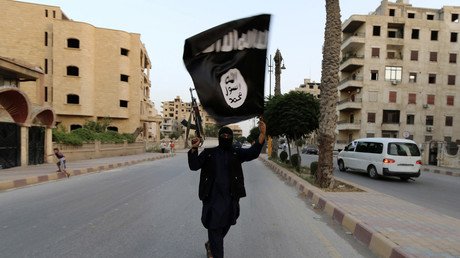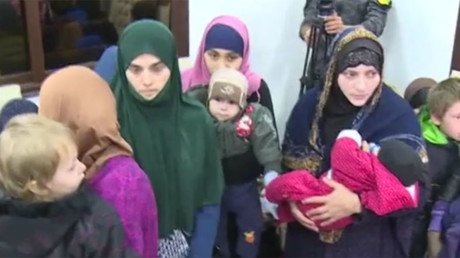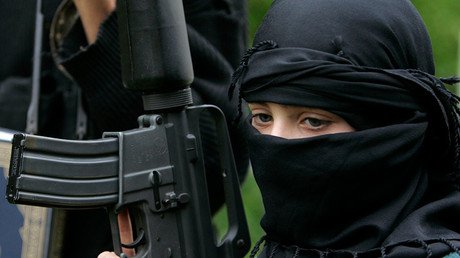‘Cycle of violence’: Are women with ‘ISIS links’ victims or terrorists’ accomplices? (DEBATE)
Do alleged ties to Islamic State justify the appalling conditions that women and children stranded in Iraqi refugee camps reportedly have to endure? Pundits argue on RT, following an alarming report by Amnesty International.
With nowhere to go, thousands of Iraqi women and children remain trapped in camps for internally displaced people after their husbands, fathers and sons were killed or arrested while fleeing Islamic State (IS, formerly ISIS/ISIL) strongholds. Because of the perceived connection to terrorists, women routinely become subjected to rape and humiliation by camp administration staff, the latest report by the human rights group has revealed.
Radio host and journalist Jon Gaunt believes that, first, “we need to find out if these people are associated with terrorists.” If these ties are established, the treatment should be “tough.” His opponent in the debate, an aid worker and JSSOR Youth Organization member, Mohammed Serkal, disagreed, saying these women should be treated with dignity, regardless their ties to IS fighters. “This is not their fault if their husband, brother or son took the gun and stood by the terrorists,” Serkal pointed out.
“Iraqis are going to treat these people with respect and, by the same token, the protection of the citizens - first. We’re talking about the Islamic State here,” Gaunt reminded spectators.
“This is not an army, this is a camp where people have fled from ISIS to be saved,” Serkal objected, noting the UN should send an investigative team to make sure the “cycle of violence” doesn’t continue. “Tomorrow they are going to take arms against the government that abused them in the camp,” he added, saying that such conditions in these camps may result in “another ISIS.”
Amnesty spoke to 92 women from eight camps, four of whom said they witnessed sexual abuse directly or had heard others scream while they were raped.
“Because they consider me the same as an ISIS fighter, they will rape me and return me back. They want to show everyone what they can do to me – to take away my honor,” says a 20-year-old woman, named Dana, who survived several rape attempts.
British #ISIS torturers 'regret' beheadings, say revoking citizenship 'unfair' https://t.co/FZqb151eIlpic.twitter.com/hZJUk0cIR3
— RT (@RT_com) March 30, 2018
Desperate and isolated women are pressured into sexual exploitation in exchange for basic needs, such as food and water, the report claims. They also face discrimination, forced displacement and threats once they manage to return home.
“The very people who are supposed to be protecting them are turning into predators,” Middle East research director at Amnesty International, Lynn Maalouf, said, urging the Iraqi authorities to ensure these women equal access to aid, health care and civil documentation.















